The Tragic Tale of Two Pound Planet’s Hydrogen Jukebox
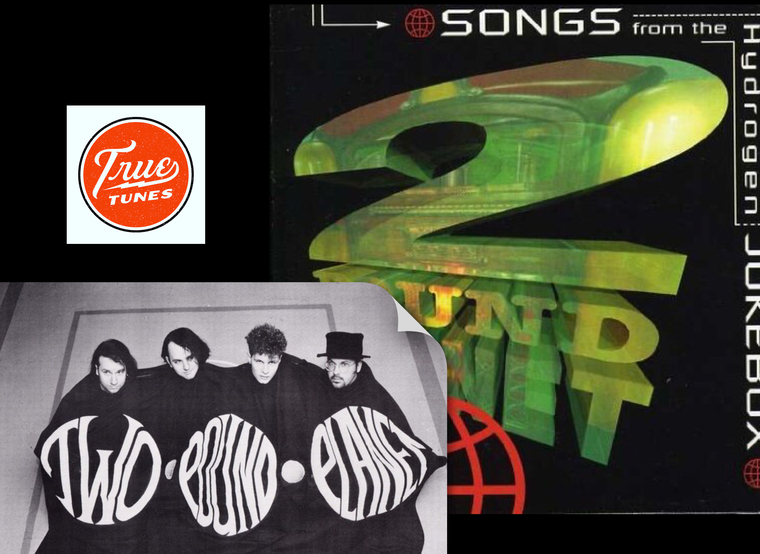
The Hopefull Re-issue of an Obscure Classic and The Sad Rock and Roll Tragedy of Two Pound Planet
Hydrogen Jukeboxes; Exciting – But Not Safe
Two Pound Planet Kickstarter (with VIDEO)
What if The Wonders, from the Tom Hanks film That Thing You Do, had been a real band in the late 80s and early 90s playing air-tight power pop a la The Posies and Jellyfish instead of a first-generation Beatlesque pop group in the early 60s? And what if, instead of having one hit and then imploding, the band got discovered by a hot-shot producer, recorded more than an album’s worth of incredible songs, traveled the country playing small clubs, and got “this close” to breaking big – but never had their moment? Would you believe me if I told you that all of that is true? That it all happened in vivid shades of green for an auspicious, but ill-fated rock band from Winston Salem, NC called Two Pound Planet? Of course you would. It happened a million times.
Most of the times these near-miss stories happened, the bands in question never got to the point of recording with a producer like Mitch Easter (Let’s Active, R.E.M., The Connells, etc.) and most never leave behind an artifact half as cool as their Songs From The Hydrogen Jukebox. In the case of Two Pound Planet, though, we have such a relic, and thanks to the lingering support of a longsuffering advocate, and the know-how of Lo-Fidelity Records, (an indie label that specializes in reissuing classic but often under-appreciated albums from the past in fabulously packaged and lusciously remastered audiophile quality,) this artifact is coming back to life. With it comes a wonderful story of smart rock and roll dreamers seeing their gaseous ambitions explode like the Hindenburg – or, really – maybe they just drifted down into the corner of the dining room like a balloon after a birthday party.
When Two Pound Planet first came onto the True Tunes radar back in the very early 1990s, we instantly adored them. We started selling the first version of their album when the band labored under the unfortunate moniker Urban Edge. With our good friend Randy Layton of Alternative Records (77s, Robert Vaughn and the Shadows) making them a major priority for his new mainstream distribution deal, we thought it was only a matter of time until this jangly power pop band would break through in a big way. They were smart, snarky, talented, and sitting right smack in the power-pop pocket that was maintaining a constant presence at triple-A and college radio. And Mitch Easter’s name brought the kind of imprimatur that should open all the right doors. Plus, though the band certainly offered a spiritual perspective on some of their songs (a couple of members of the band considered themselves to be “believers” and one was a fan of The Choir, The 77s, Daniel Amos, and others in the True Tunes firmament,) they were not a “Christian Band” by any stretch of the term. We touted them at True Tunes in the same spirit in which we embraced The Alarm, Midnight Oil, Guadalcanal Diary, Simple Minds, and so many other mainstream bands with heart, soul, mind, and strength, incorporated into their art.
When band member Jerry Chapman (bass, vocals) ordered a copy of The 77s More Miserable Than You’ll Ever Be from Alternative Records, Layton noticed Winston-Salem on the return address. He wrote a note referencing “Mitch Easter Country” on the package. Chapman replied to Layton that yes, it was – and that he was in a band that happened to be working with the famed producer. Layton was intrigued. Chapman sent him demos. A relationship was formed.
Easter had heard the band, then still called Urban Edge, and was cutting the album with them in his parents’ garage – a studio he dubbed “The Drive-In.” Winston-Salem was a major pop music scene in those days, with a huge college crowd, several venues, and a thriving creative buzz. Ben Folds emerged from the same area a bit later. Easter, a member of the celebrated band Let’s Active, had already become a go-to producer based on his success with R.E.M, and was convinced that Urban Edge had what it took to be the next “next big thing.” He worked with the band on a full-length album, all analog, old-school – full production pop. It’s an aural treat, complete with every tool and trick at their disposal and loaded with finely polished songs, several of which were radio-ready, to put it mildly. All were convinced that a label would snatch up the band, buy the masters, and take them to the moon and back. The band toured aggressively, got some great press, and turned the heads of some A&R folks. But ultimately – nothing else.
So Two Pound Planet, armed with a fantastic album, took to the road. They partnered with Layton and Alternative Records to release the album independently. Layton had been working on a mainstream distribution deal and was keen to find a pathway for “real” bands into the “real” world. He had worked with Exit Records and had seen how close The 77s had gotten to breaking big. He had a vision and a foothold. After changing their name, Two Pound Planet’s Songs From The Hydrogen Jukebox was released. The band toured – including some great club gigs. They charted on college radio in some small markets. When people heard the band, they loved them. The problem was, too few heard them.
Anyone needing to be convinced should stream “One Time/Bop Apocalypse” and remember that this was recorded before the days of samplers and triggers. From the perfectly positioned drums, the layered and many colored keyboard sounds, the Spirit of McCartney bass, the complex and yet instantly accessible arrangement, and the stacks of vocal harmonies, this is pop perfection. Other highlights include the opening track, “No Room,” and the one sure single “Ricochet Radio.” Hearing music this well-crafted on vinyl will be a real treat.
As grunge music took over the mainstream rock world, and alternative music got darker, guitar-based power pop receded. Even bands like Jellyfish, who had much more money thrown at them by major labels, failed to break through in the early 90s. An entire genre – one that had everything it took to be hugely mainstream – was relegated to niche status. There would not be a Cheap Trick moment here. Two Pound Planet, like so many other great rock and roll bands of the era, would grind to a halt, break up, and fade into even more obscurity. Ironically, though they were never a faith-based band at all, True Tunes was one of the few stores to sell their record, and we were such big fans we were largely responsible for the band becoming connected to the fringe, alternative Christian music scene.
Listening back to the album, it’s impossible to deny the power of a solid band and a great producer. Though the album’s title was based on a line from an Allen Ginsburg poem, it may have been an apt metaphor for them – or most bands, really. Great songs and great bands are lighter than air, dynamic, and combustible. They rarely last.
(A VERY limited number of copies of TPP’s music is being remastered and repackaged by Lo-Fidelity via Kickstarter. Time is short. Back this project now.)
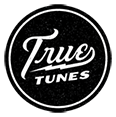
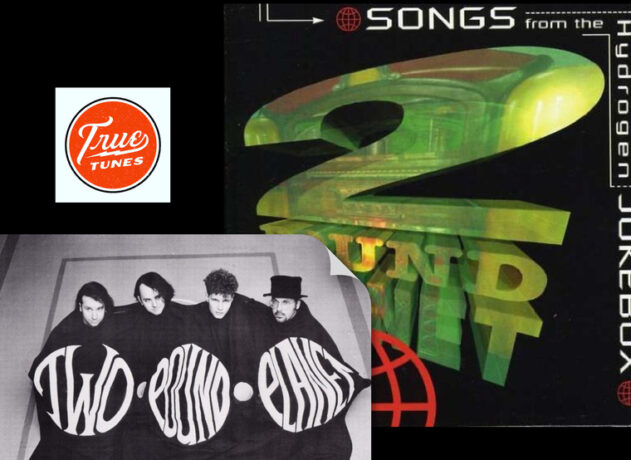
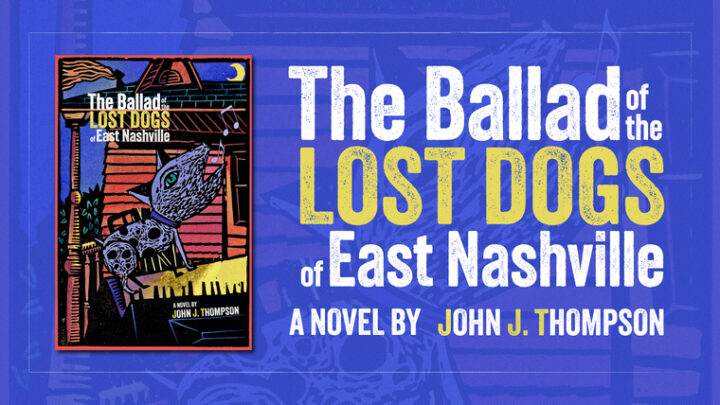
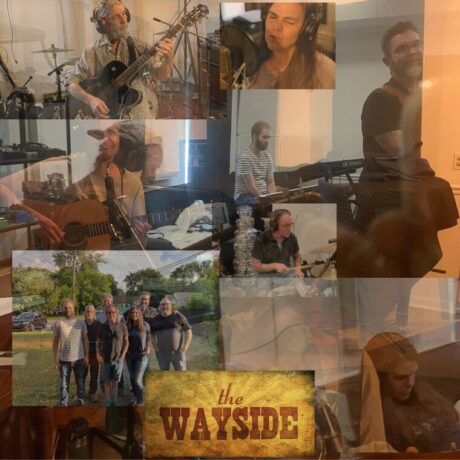
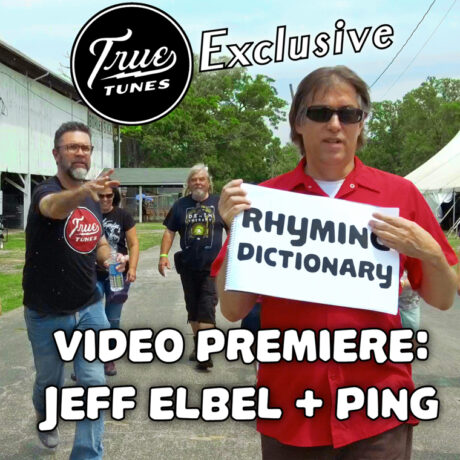
September 23, 2020 @ 5:27 PM
A really concise look at a compelling story and band-thanks for sharing!